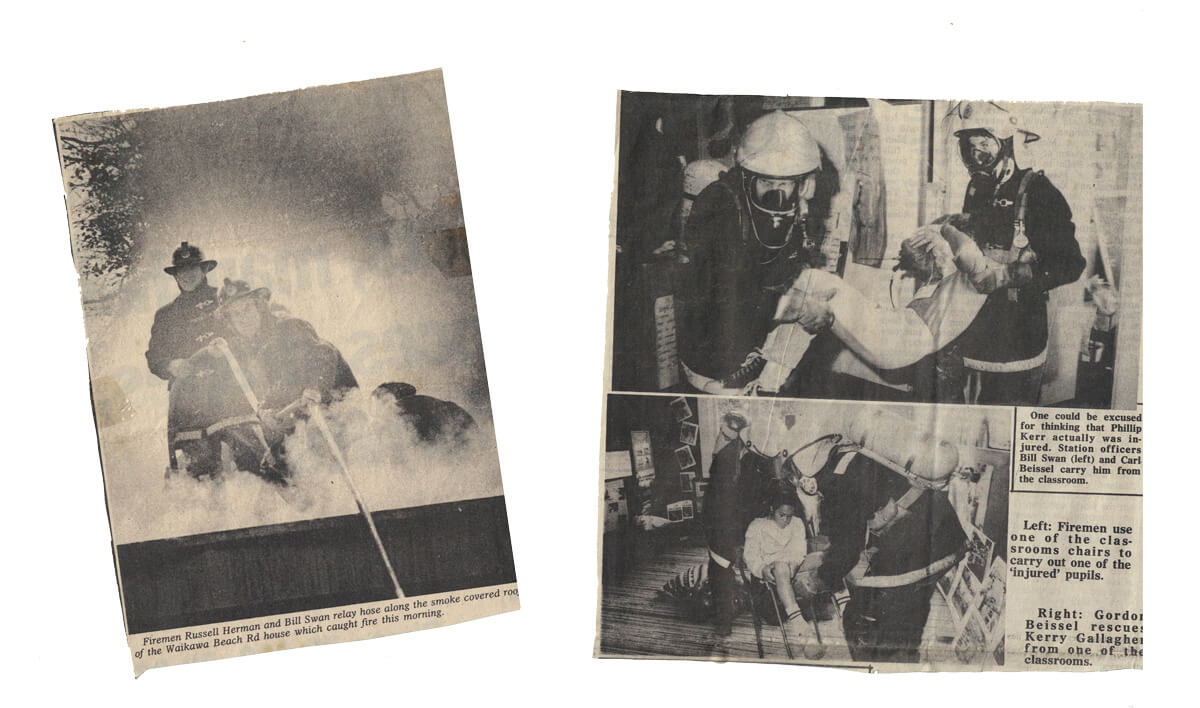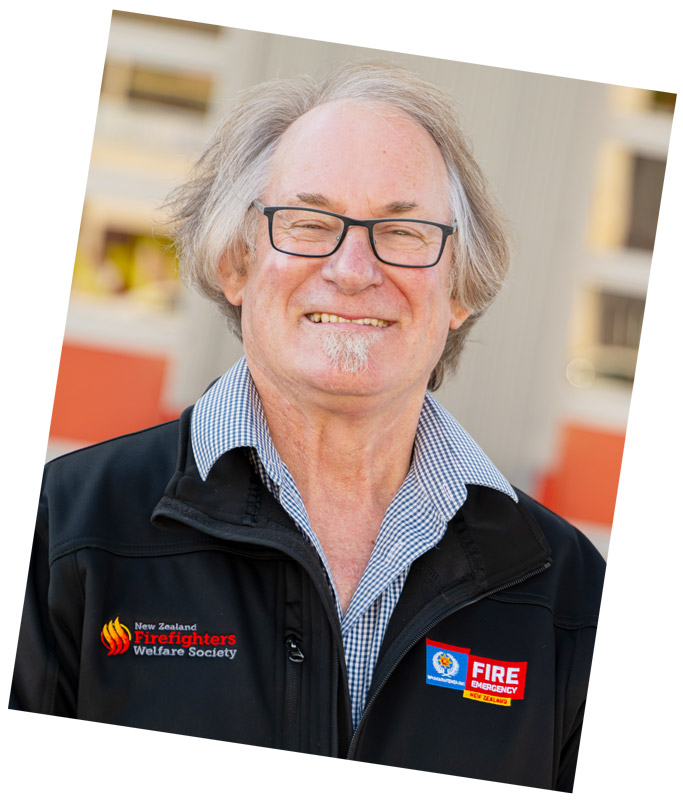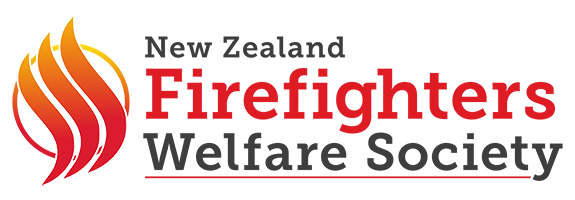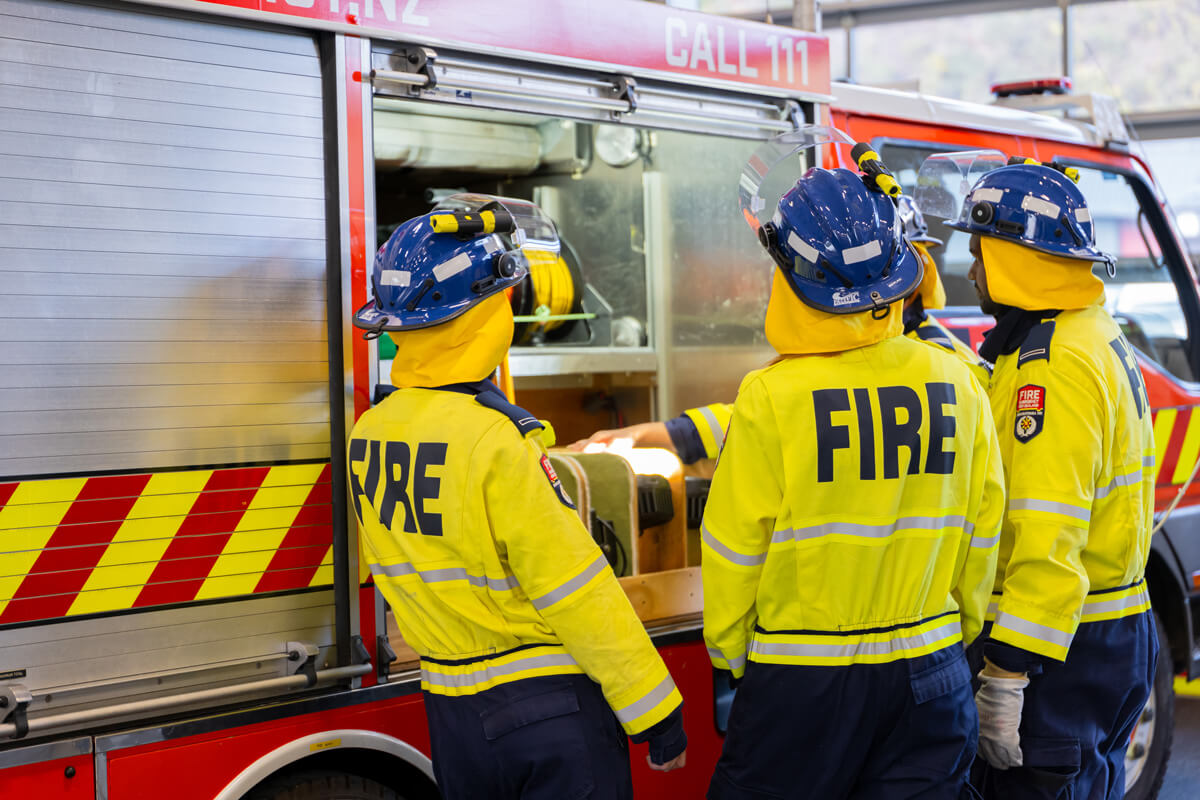This International Volunteer Day, we’re celebrating the incredible work of Volunteers everywhere
We sat down with our Chair, Bill Swan, to discuss his journey from Volunteer Firefighter to Career Firefighter, then onto the Chair of the NZ Firefighters Welfare Society. We asked him how volunteerism has shaped his life and community.
In the Beginning - How did you Become a Volunteer?
Bill grew up in Waitarere Beach and began an electrical apprenticeship in Levin, where the Chief Fire Officer of Levin was also working. He cornered Bill one day, asking, “You live at Waitarere Beach, don’t you?” to which Bill replied, “That’s right, sir,” (because that’s how you addressed people back then). He responded, “You’ll be joining the Waitarere Beach Fire Brigade then, won’t you?” to which Bill replied, “Yes, sir.”
For the next three years Bill worked as a Volunteer Firefighter at Waitarere Beach, after which he transferred to the Levin Volunteer Fire Brigade. In 1987 Bill was accepted as a Career Firefighter at Palmerston North, but he remained loyal to the Levin Brigade, staying on as a Volunteer Firefighter on his days off. For Bill, the decision was easy.
“Volunteerism is ultimately about serving your community and Levin was still very much my community. It was where I lived and where my kids went to school.”
“For me it was about continuing to serve my community for as long as I could, and I think that is the essence of volunteerism too – it’s the sense of making a difference for your community and helping your community. The Welfare Society’s motto is” firefighters helping firefighters and their families” I think volunteerism is also about helping those in need. When that call comes in it’s about stepping up and helping. For me being a Volunteer was a very important part of my Fire Service career.”
In those early days Bill remembers holding a lot of fundraising events to buy the latest rescue gear and the support of the community was vital, as it still is today in many ways.

The Evolving Role of Firefighters
Reflecting on his firefighting career, Bill noted significant changes over the years for Firefighters in general and in fact overall, a lot has changed.
“Firefighting was once about putting out fires. Now, it involves attending motor accidents, medical emergencies, and natural disasters. In rural areas, Volunteers are often first responders, which can be emotionally challenging – especially when you know the people involved.”
The workload has grown too. More natural disasters mean Volunteer Brigades must manage flooding, storms, and search and rescue efforts. Fire stations have become community hubs for disaster response, but this comes with a cost.
“I think the time commitment is a big ask for Volunteers, with more and more calls happening. The time away from their employment and from their families is a big ask.
I think the psychological challenges for Firefighters is greater due to the types of incidents they attend – the welfare mechanisms and the background to assist Firefighters with psychological challenges is so very important.”


